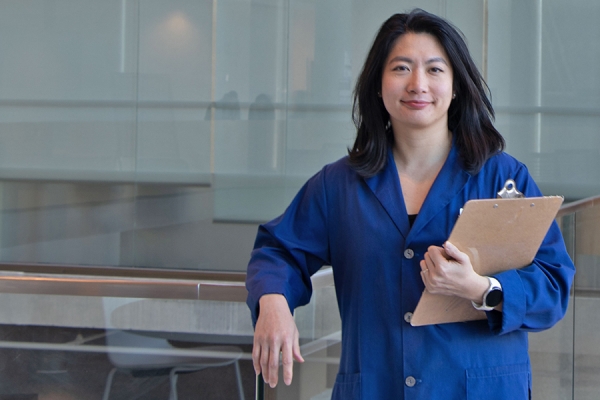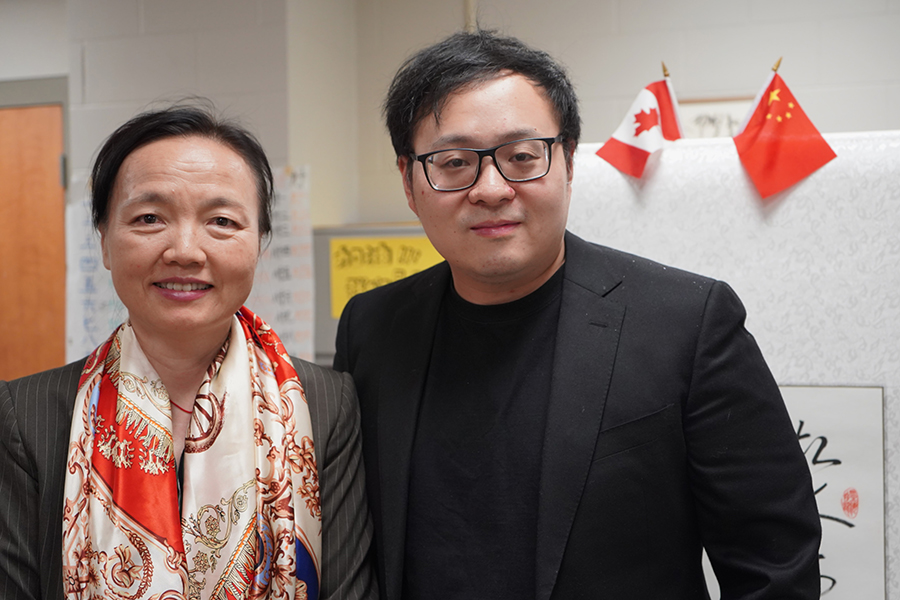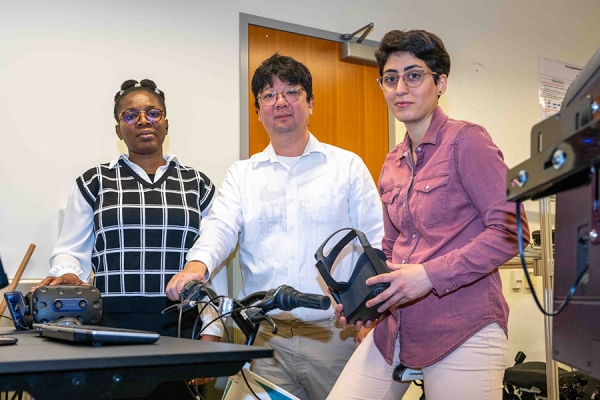 Sharon Lavigne is co-ordinator of the Chemical Control Centre.
Sharon Lavigne is co-ordinator of the Chemical Control Centre.
The campus is home to many labs, some of which deal with hazardous chemicals and biological materials. That’s where Sharon Lavigne steps in as co-ordinator of the Chemical Control Centre, committed to keeping staff and students safe.
She and her coworkers ensure labs working with hazards such as chemicals, radiation, lasers, and biological materials are doing so safely and adhering to government regulations.
“I conduct inspections, making sure people are registering on our ERSO research portal, which is a database used by many departments to track materials and ensure appropriate lab procedures are followed,” she explained.
“I also work with the research safety committee to ensure everything is being followed and that all of our safety equipment, such as fume hoods and biosafety cabinets, is certified and working to keep our staff and students safe.”
The Chemical Control Centre serves as the University’s “one-stop source” for hazardous materials on campus. Its services include managing the chemical stockroom, providing lab safety training, and handling hazardous waste disposal.
In the basement of Essex Hall, five team members each focus on a different aspect of chemical safety. Together, they ensure that all aspects of chemical safety are carefully managed and that the University meets its safety standards.
“Two people handle procurement, while another colleague and I focus on compliance, including daily lab inspections, ensuring procedures are followed, materials are stored properly, and all personal protective and safety equipment are available for students. Another manages hazardous waste disposal and oversees everything in that area,” she said.
Lavigne has been a Lancer for about 15 years, having attended UWindsor for her undergraduate degree in biology and biotechnology, then returning for her master’s in environmental science with the Great Lakes Institute for Environmental Research (GLIER) shortly after.
While her academic background focused on biology, Lavigne said elements of chemistry and education helped her prepare for her current role.
She enjoys the day-to-day work in the lab, but Lavigne said her favourite part of her job is the people she gets to work with — students, staff, and faculty alike.
“I get to meet a wide variety of people, each with unique experiences. I love working with students and supporting their research,” Lavigne said. “The staff here is also amazing — you can see they genuinely want the best for the students they support.”






